Featured
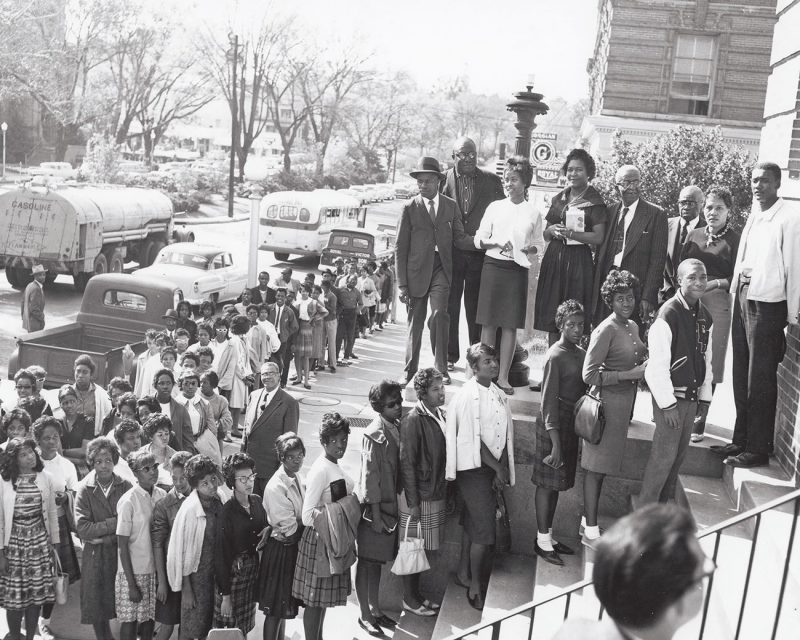 Jim Crow Killed Voting Rights for Generations. Now the GOP Is Repeating History. By Ari Berman / Mother Jones
Jim Crow Killed Voting Rights for Generations. Now the GOP Is Repeating History. By Ari Berman / Mother Jones
On September 3, 1868, Henry McNeal Turner rose to speak in the Georgia House of Representatives to fight for his political survival. He was one of 33 new Black state legislators elected that year in Georgia, a revolutionary change in the South after 250 years of slavery. Eight hundred thousand new Black voters had been registered across the region, and the share of Black male Southerners who were eligible to vote skyrocketed from 0.5 percent in 1866 to 80.5 percent two years later. One hundred and fifty years later, another Georgia legislator representing Macon rose to defend the rights Turner had fought for. Like Turner, Democratic state Sen. David Lucas is an African Methodist Episcopal minister. On February 23, 2021, Lucas, now 71, took to the Senate podium to oppose a new voter-ID requirement for mail-in ballots introduced by Georgia Republicans. Shown are Jim Crow era Black voters. Read more
Political / Social
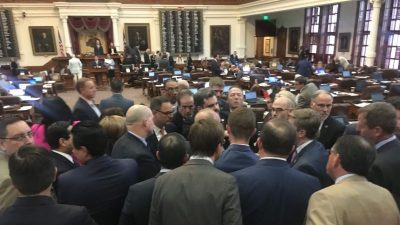 100 Experts Express ‘Growing Alarm’ That Republicans Are Endangering Democracy. By Josephine Harvey / HuffPost
100 Experts Express ‘Growing Alarm’ That Republicans Are Endangering Democracy. By Josephine Harvey / HuffPost
More than 100 scholars have issued a dire warning that Republicans are putting the nation’s democracy in danger by restricting access to voting and perpetuating the fiction that the 2020 presidential election was not secure. “We, the undersigned, are scholars of democracy who have watched the recent deterioration of U.S. elections and liberal democracy with growing alarm,” said a statement released Tuesday by the New America think tank. “Specifically, we have watched with deep concern as Republican-led state legislatures across the country have in recent months proposed or implemented what we consider radical changes to core electoral procedures in response to unproven and intentionally destructive allegations of a stolen election.” Shown are Texas legislators. .Read more
Related: Analysis: American democracy is about to to show if it can save itself. By Stephen Collinson / CNN
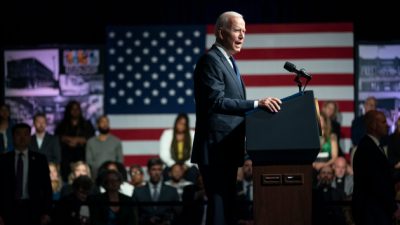 Biden in Tulsa: “This Was Not a Riot. This Was a Massacre.” By Abigail Weinberg / Mother Jones
Biden in Tulsa: “This Was Not a Riot. This Was a Massacre.” By Abigail Weinberg / Mother Jones
During his Tuesday visit to Tulsa, Oklahoma, to commemorate the 100th anniversary of a massacre that killed scores of Black people and destroyed a once-thriving Black community, President Biden delivered a wide-ranging address on racial injustice, promising to strengthen voting rights, and help close the racial wealth gap. Biden noted that he was the first sitting president to visit Greenwood, the Tulsa community known as “Black Wall Street” before it was destroyed in 1921. In advance of his speech, he met with the three known living survivors of the massacre: Viola “Mother” Fletcher, Hughes “Uncle Red” Van Ellism and Lessie “Mother Randle” Benningfield Randle. Read more
Related: Tulsa Church Commemorates Race Massacre Centennial With New Prayer Wall. By Peter Smith / HuffPost
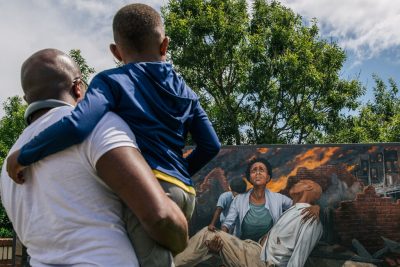 What Tulsa Can Teach Us.
What Tulsa Can Teach Us.
About a decade ago, when third-, fourth- and fifth-grade students at Mayo Demonstration School in Tulsa, Okla., were studying the city’s history, their team of teachers gave them a special assignment: build a scale model of its once segregated Black business district, Greenwood, which was known as Black Wall Street. The students spent days working on the project. They toured the real Greenwood neighborhood for inspiration, created facades of the businesses, labeled the streets. Once finished, they planned a memorial celebration and invited their parents to attend. But the night before the celebration, the teachers quietly stayed behind. They doused the model with lighter fluid, set it on fire and let it burn for a few minutes before putting it back. The students were dismayed when they returned to school the next day. Who had destroyed their painstaking work, and why? Read more
Related: It was much more than Tulsa. By Eugene Robinson / Wash Post
Related: How Tulsa Race Massacre Shaped Today’s Most Successful Black CEOs. By David Gura / NPR
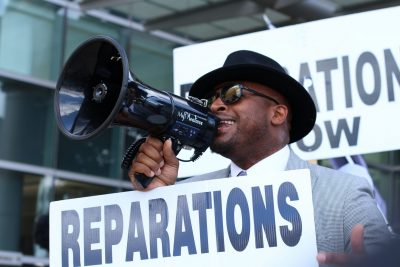 The Tulsa Race Massacre was 100 years ago. But it’s not too late to pay reparations. By Chief Egunwale Amusan / NBC News
The Tulsa Race Massacre was 100 years ago. But it’s not too late to pay reparations. By Chief Egunwale Amusan / NBC News
Today, the Greenwood community is held back in nearly every measure, including health, education, jobs, economic opportunity, housing and criminal justice. Black youths are three times more likely to be arrested than white youths in Tulsa. The presence of more payday lenders and fewer banks and credit unions in North Tulsa, where the majority of Black Tulsans live, limits our ability to accumulate wealth. The Black infant mortality rate in Tulsa is almost three times that of white Tulsans. Shown is Rev. Dr. Robert Turner of the Historic Vernon Chapel A.M.E. Church holds his weekly Reparations March ahead of the 100 year anniversary of the 1921 Tulsa Massacre Read more
Related: California Task Force Launches Study Of Slave Reparations. By Janie Har / AP and HuffPost
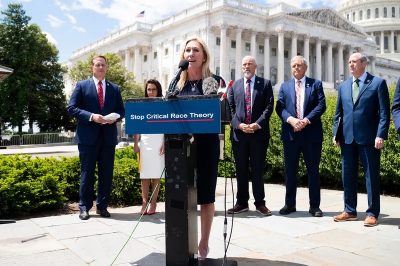 The Brewing Political Battle Over Critical Race Theory. By Barbara Sprunt / NPR
The Brewing Political Battle Over Critical Race Theory. By Barbara Sprunt / NPR
Last month, Republican lawmakers decried critical race theory, an academic approach that examines how race and racism function in American institutions. “Folks, we’re in a cultural warfare today,” Rep. Ralph Norman, R-S.C., said at a news conference alongside six other members of the all-Republican House Freedom Caucus. “Critical race theory asserts that people with white skin are inherently racist, not because of their actions, words or what they actually believe in their heart — but by virtue of the color of their skin.” Rep. Lauren Boebert, R-Colo., added: “Democrats want to teach our children to hate each other.” Read more
Related: US Black-White inequality in 4 charts. By Tami Luhby / CNN
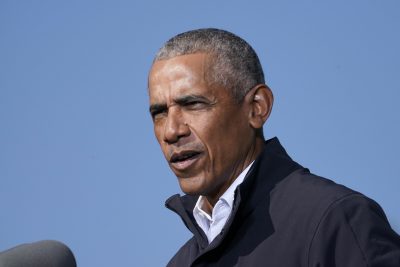 Obama Explains How America Went From ‘Yes We Can’ to ‘MAGA.’ By Ezra Klein / NYT Podcast
Obama Explains How America Went From ‘Yes We Can’ to ‘MAGA.’ By Ezra Klein / NYT Podcast
Before our interview, I’d read “A Promised Land,” the first volume of Obama’s presidential memoirs. It had left me thinking about the central paradox of Obama’s political career. He accomplished one of the most remarkable acts of political persuasion in American history, convincing the country to vote, twice, for a liberal Black man named Barack Hussein Obama during the era of the war on terror. But he left behind a country that is less persuadable, more polarized, and more divided. So this is a conversation with Obama about both the successes and failures of his presidency. Listen here
Related: Trump’s back. Here’s what his re-entry means for 2024. By Jonathan Allen / NBC News
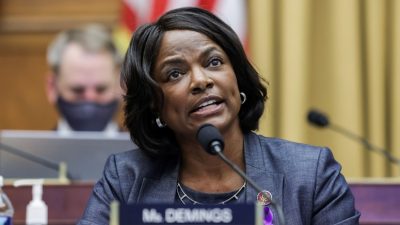 Black women’s next targets: Governorships and Senate seats. By Bill Barrow / AP and ABC News
Black women’s next targets: Governorships and Senate seats. By Bill Barrow / AP and ABC News
McClellan and Carroll Foy, a 39-year-old former legislator, are trying to break another barrier by becoming the first Black woman to win a governor’s race in any state. They are decided underdogs to former Gov. Terry McAuliffe in Virginia’s June 8 primary. Yet they’re nonetheless part of a surge in candidacies by Black women in the Democratic Party, not just for local and legislative posts but also statewide offices that are still new ground for Black women. Shown is Congresswoman Val Demings, (D-FL), speaks during a House subcommittee hearing on Capitol Hill, in Washington, D.C., July 29, 2020. She is running for the Senate seat held by GOP Sen. Marco Rubio. Read more
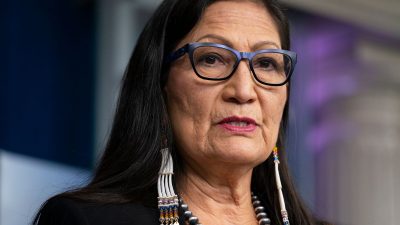 The Promise and Pressures of Deb Haaland, the First Native American Cabinet Secretary. By Elizabeth Williamson / NYT
The Promise and Pressures of Deb Haaland, the First Native American Cabinet Secretary. By Elizabeth Williamson / NYT
Six members of the Laguna Pueblo community gathered last week in the cool, fragrant kitchen of an adobe house, discussing their hopes for “Sister Deb” — Deb Haaland, a Laguna citizen, former congresswoman from New Mexico and now secretary of the interior. It is difficult to overstate the significance to Native people of Ms. Haaland’s role as the first Native American to lead a cabinet agency, specifically an agency once responsible for eradicating the homes, the culture and often the lives of Indigenous people. Read more
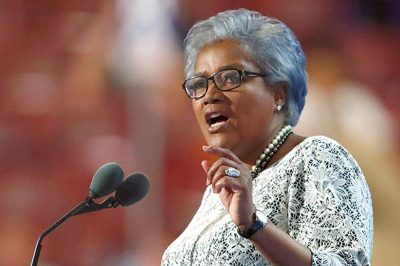 Donna Brazile, one of Fox News’ last remaining liberals, quietly leaves network. By Zachary Petrizzo / Salon
Donna Brazile, one of Fox News’ last remaining liberals, quietly leaves network. By Zachary Petrizzo / Salon
Donna Brazile, the former Democratic National Committee chairwoman-turned-political analyst, quietly announced Friday that she is leaving Fox News after two years at the conservative-leaning network. She told The Daily Beast that she plans on joining ABC News as a contributor after appearing last weekend on the network’s Sunday morning show, “This Week.” She told the outlet in a text message, “When my contract expired [with Fox], they offered me an additional 2-4 years. But I decided to return to ABC.” Read more
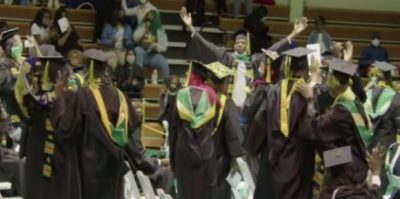 As graduates cheered, an HBCU president announced that their debt to the university was wiped away. By Jaclyn Peiser / Wash Post
As graduates cheered, an HBCU president announced that their debt to the university was wiped away. By Jaclyn Peiser / Wash Post
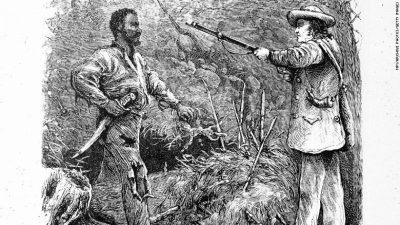 Second Amendment is not about guns — it’s about anti-Blackness, a new book argues. By John Blake / CNN
Second Amendment is not about guns — it’s about anti-Blackness, a new book argues. By John Blake / CNN
In “The Second: Race and Guns in a Fatally Unequal America,” Carol Anderson argues that the Second Amendment is not about guns — it’s about anti-Blackness. She says it “was designed and has consistently been constructed to keep African-Americans powerless and vulnerable.” Anderson cites legislative debates from the Founding Fathers and a range of historical records to make some bold points. She says some early lawmakers who supported the Second Amendment were more worried about armed Blacks than British redcoats. She says that even after the Civil War ended, many Southern states banned Black citizens from owning weapons. Read more
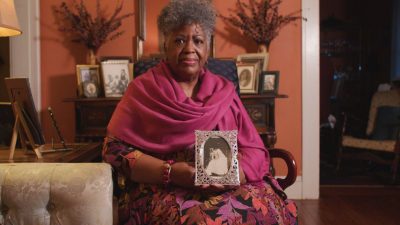 Before Tulsa, this Georgia county forced out nearly all Black residents. By Ryann Younv / CNN
Before Tulsa, this Georgia county forced out nearly all Black residents. By Ryann Younv / CNN
Forsyth County, Georgia, was home to over a thousand Black residents in the early 20th century, including some who owned hundreds of acres of land. The death of a White teenager and the lynching of a Black man upended the community, causing ripple effects. Watch here
 The Reconstruction Origins of Black Wall Street. By Alexander E. Stern / AAIHS
The Reconstruction Origins of Black Wall Street. By Alexander E. Stern / AAIHS
The 1921 Tulsa Race Massacre targeted and destroyed the city’s prosperous Greenwood District, home to a vibrant economy of Black-owned businesses that was known nationally as Black Wall Street. The Greenwood District’s origins are usually placed around the turn of the century with the development of the area’s oil resources. However, its emergence was also critically founded in the wealth of African Americans and Black freedpeople made possible by the region’s unique political and economic history of Reconstruction. Read more
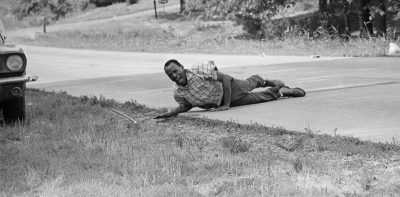 Shot 55 years ago while marching against racism, James Meredith reminds us that powerful movements can include those with very different ideas. By Aram Goudsouzian / The Conversation
Shot 55 years ago while marching against racism, James Meredith reminds us that powerful movements can include those with very different ideas. By Aram Goudsouzian / The Conversation
James Meredith was walking down Highway 51 just south of Hernando, Mississippi. It was June 6, 1966, the second day of his planned 220-mile trek from Memphis to Jackson, which he undertook to encourage Black people to overcome racist intimidation and to register to vote. As cars filled with newspaper reporters and police officers rolled nearby, he walked a sloping stretch of road lined with pine trees. He heard a shout: “James Meredith! James Meredith!” A white man in a roadside gully lifted his shotgun, aimed at Meredith and fired. Meredith was hit and crawled across the road, his eyes wide with panic. As he splayed onto the gravel shoulder of Highway 51, blood soaked through the back of his shirt. Read more
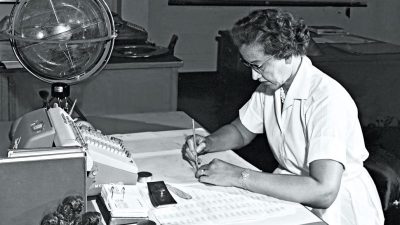 Katherine Johnson of ‘Hidden Figures’ tells her story in her own words. By Lisa Page / Wash Post
Katherine Johnson of ‘Hidden Figures’ tells her story in her own words. By Lisa Page / Wash Post
You may remember Johnson from the 2016 book “Hidden Figures” and the film based on it. I wish I’d known about the story sooner. As Johnson’s NASA mentee Yvonne Darlene Cagle writes in the foreword: “Why didn’t all little girls know, especially little girls of color? Why did I have to go through so much hurt and heartache in life when I could have looked at her and held my head high and stepped through with such poise, comportment, and grace? Why couldn’t I have had that voice that spoke, not just to the world, but to my heart, to my resolve?” So it was with awe that I read “My Remarkable Journey,” Katherine Johnson’s posthumous memoir about her life as a Black female mathematician. Read more
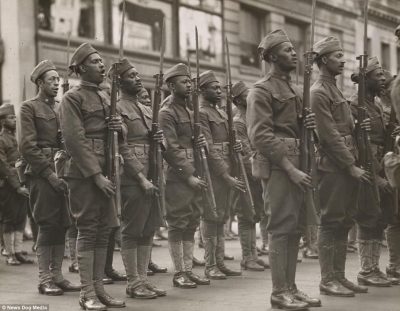 Service, patriotism and the promise of Black liberation. By E.J. Dionne Jr. / Wash Post
Service, patriotism and the promise of Black liberation. By E.J. Dionne Jr. / Wash Post
When the signers of the Declaration of Independence pledged to each other “our Lives, our Fortunes and our sacred Honor,” they were describing precisely why we set aside Memorial Day to honor all who have died in service to our nation. We often declare, rightly I think, that those who gave their lives for our country were fighting for freedom. But after a year marked by a searing confrontation with racial injustice, in the present and in our history, we would do well to ponder the military sacrifice of Black Americans from the Civil War forward. In World War II alone, 1.2 million Black Americans served in the military. What did freedom mean for those who faced racial oppression? Read more
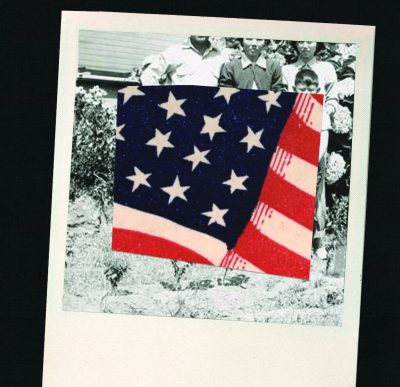 The Beautiful, Flawed Fiction of ‘Asian American.’ By Viet Thanh Nguyen / NYT
The Beautiful, Flawed Fiction of ‘Asian American.’ By Viet Thanh Nguyen / NYT
One is not born an Asian American. It’s an identity that is inherently political, and must be chosen. Before college, I had never even heard of the term, but I vividly remember the moment that I became Asian American. I was raised in multicultural San Jose, Calif., during the late 1970s and 1980s, among Mexican Americans and working-class white people. My family and I were refugees from Vietnam and the war fought there, but all I knew of the history that had brought us and many of our neighbors to the United States was what Hollywood told me. It confused me and shamed me to see people who looked like my parents being reduced to wordless masses, condemned to be killed, raped, rescued or silenced. Read more
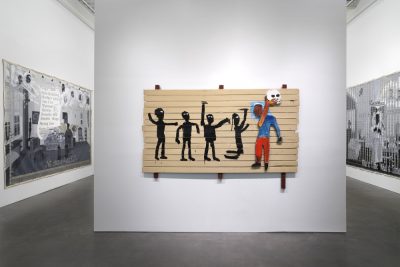 Exhibit explores ‘the national emergency of Black grief.’ By Julianne McShane / NBC News
Exhibit explores ‘the national emergency of Black grief.’ By Julianne McShane / NBC News
In 2018, Nigerian curator and art critic Okwui Enwezor began planning “Grief and Grievance: Art and Mourning in America,” an exhibition centered on the themes of Black grief and white grievance, at the New Museum in New York City. In his plans, Enwezor cited Donald Trump “appealing to white grievance” to win the presidency. But Enwezor’s exhibition, which is on view through June 6, reaches beyond this point to feature more than three dozen contemporary Black American artists who represent the concepts “of mourning, commemoration, and loss as a direct response to the national emergency of black grief,” he imagined. Read more
 Interracial couple representation in pop culture isn’t as progressive as we think. By Rebecca Theodore-Vachon / The Undefeated
Interracial couple representation in pop culture isn’t as progressive as we think. By Rebecca Theodore-Vachon / The Undefeated
In June 2013, Cheerios aired its usual family-friendly commercial where a cherub-faced little girl approaches her mother in the kitchen and asks, “Dad says Cheerios is good for your heart. Is that true?” What should have been a heartwarming ad about an everyday American family quickly attracted a firestorm of controversy. Why? This commercial depicted an interracial family consisting of a Black father, white mother and a mixed-race child. Over the last five years, these portrayals of interracial relationships are so common that they often go unmarked. Yet, even though there is more diversity of different kinds of pairings – multiethnic, non-monogamous, queer – the optics are just one part of the story. Are depictions of interracial unions and by extension, mixed-race and biracial children, a sign of racial progress? Read more
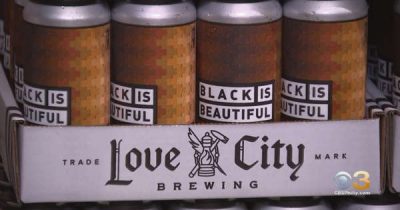 ‘Black Is Beautiful’ Beer By Black Brewer Helps Pour Money Into Social Justice Reform. By John Burnett / NPR
‘Black Is Beautiful’ Beer By Black Brewer Helps Pour Money Into Social Justice Reform. By John Burnett / NPR
The turning point for Marcus Baskerville came one morning when he was driving down the highway, and heard on the radio about the fatal police shooting of Breonna Taylor. Joining a street protest wasn’t his style, but what could he, as one of the few Black brewers in America, do to make a statement? His answer? Create a beer called Black is Beautiful and share the recipe with brewers across the country. “It’s a call to breweries within the United States to participate in a collaborative effort. They would brew a stout, [then] release 100% of those proceeds to local organizations, charities, foundations that support equality, inclusion and social justice reform,” he says. Read more
Sports
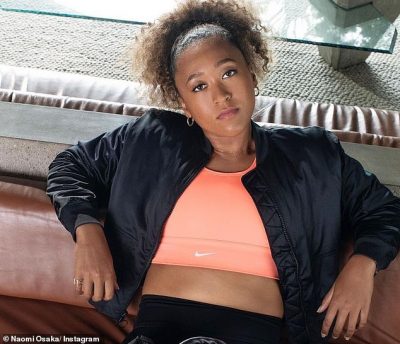 Naomi Osaka stands up for all athletes by refusing to be exploited at the cost of her mental health. By Kylie Cheung / Salon
Naomi Osaka stands up for all athletes by refusing to be exploited at the cost of her mental health. By Kylie Cheung / Salon
From Osaka’s initial announcement on Wednesday, May 26 that she wouldn’t conduct her press obligations, to her Monday withdrawal from the tournament, Osaka has sparked critical dialogue about mental health, exploitation of athletes, and persistent mistreatment of Black athletes across sports. Osaka’s bold assertion of her own agency is inspiring in a sports world where mostly Black athletes are routinely treated as a spectacle that fans and media are entitled to full access to, rather than human beings. Read more
Related: Nike backs Naomi Osaka after she withdraws from French Open. By Hanna Ziady / CNN
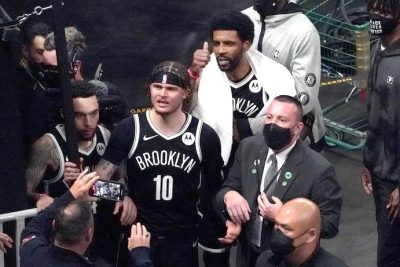 After water bottle thrown toward Kyrie Irving in Boston, Nets star compares arena to ‘human zoo.’ By Des Bieler / Wash Post
After water bottle thrown toward Kyrie Irving in Boston, Nets star compares arena to ‘human zoo.’ By Des Bieler / Wash Post
 NBA agent Rich Paul says white American athletes don’t want a Black agent. By Jack Baer / Yahoo Sports
NBA agent Rich Paul says white American athletes don’t want a Black agent. By Jack Baer / Yahoo Sports
Rich Paul has become one of the most powerful agents in the NBA via his own abilities, maneuvering and, of course, his close friendship with LeBron James. He believes there is a significant group of athletes that don’t want to work with him, though. In a wide-ranging interview with The New Yorker’s Isaac Chortiner, Paul discussed the intricacies of being a Black man in a field of agents that is overwhelmingly white. After saying many Black athletes are reluctant to sign with a Black agent, Paul said it was much more the case with their white counterparts: Read more
Site Information
Visit our home page for more articles, book/podcast and video favorites. And at the top of this page register your email to receive notification of new editions of Race Inquiry Digest. Click here for earlier Digests.
About Race Inquiry and Race Inquiry Digest. The Digest is published on Mondays and Thursdays.
Use the buttons below to share the Digest in an email, or post to your Facebook, Linkedin or Twitter accounts.